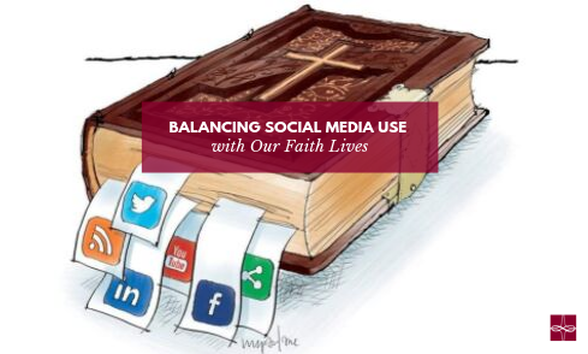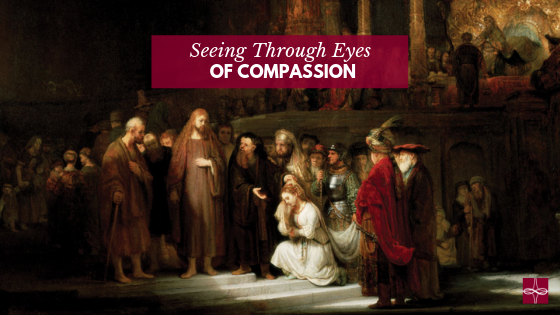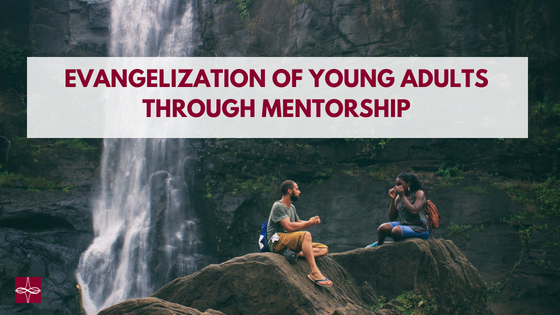|
As a communications manager who handles the social media accounts for my day job, I’ve had to work at and learn how to better manage my time spent on social media. While this technology is an exciting and ever-evolving resource for sharing and obtaining news, I’ve found social media can also drain my energy or keep me from my priorities. Within the last year, I noticed I was spending four or more hours a day on social media and browsing the Internet. I saw my spiritual life was being affected, so during this past Lent, I decided to do something about that imbalance. I knew I still needed social media for work use, and I discovered a solution. By implementing the screen time and do-not-disturb settings on my phone, I found I could limit my social media consumption to an hour per day. Whatever time was left after work allocations I could spend on personal social media time. Most days I used 45 minutes or the whole hour for work. I came to appreciate that my time was spent elsewhere in a more productive manner. I used the time for additional prayer, reading, church, conversations with friends, and other enjoyable activities. My brain didn’t feel as fuzzy and scattered with random bits of information that would send me off the paths toward my personal, professional, and spiritual goals. After Lent, I took off the screen time and do-not-disturb parameters on my phone due to an evening work event. Since then, I’ve turned them back on. This experience of self-reflection and adjustment of my behaviors reminded me of why God provides us with commandments: to set us free from sin in order to allow us to become more perfectly the people he created us to be. By growing in self-awareness and setting self-imposed boundaries, we can better harness social media for the good. Here are a few questions to consider that I have found help me when evaluating my time spent on social media: (1)Are you present to those around you? People using their digital devices when in the company of others is a growing trend – and a sad one at that. Instead, we should put away our devices and give our attention and time to those in front of us. Being fully present to those we are spending time with in-person shows that we are investing in our relationships and affirming their humanity. By being present to those around us, we respect them and uphold their dignity. (2)Do you let social media distract you from God and others in your life? Have you formed the habit of checking your phone every couple of minutes or felt the non-existent buzz of a notification? Have you moved to autopilot looking through your social media feeds or gone down the rabbit hole of an internet or video search only to see that one, three, or more hours have gone by? This reliance on our phones provides great distraction in our lives, making us susceptible to temptation. We should work to embrace silence with ourselves and with God. By scheduling solitude with God in prayer or time for ourselves to be constructive, we come to know God’s path for us and how he calls us to give of ourselves to others in love. (3)Ask yourself, “Do you really need to share this moment?” With 24/7 access to an inside look at our life’s daily moments through social media, we seem to have lost a sense of privacy and humility. Before posting content to social media, consider the discretion of the moment. Check with family, friends, and significant others if something including them is appropriate to post. Respect their space and yours. Ask yourself why you’re posting the content you want to share and check your motivations. (4)Do you view social media as an outlet that steals your happiness or as a way to share your joy? There is much truth to the adage, “Comparison is the thief of joy.” Comparing ourselves, our possessions, our appearance, our jobs, our wealth, and our relationships to those of others prohibits us from feeling gratitude for our blessings and can derail us from our personal goals. Thanking God for at least one thing a day can help cultivate a spirit of joyfulness, allowing us to celebrate, learn from, and be happy for others around us. (5)Do you feel isolated when spending time on social media? Social media can be a great way to connect with Catholic communities. Personally, I enjoy the discussions and fellowship that Facebook groups cultivate. However, we must be cautious of the temptations to become a technology hermit, as Pope Francis warns of in his 2019 World Day of Social Communications message, or posting “for the sake of Instagram” or self-interested comments. (6)How do you treat others on social media? What we say on social media and Internet comment sections matters. Pope Francis encourages Catholics to live out the faith through social networks as the Body of Christ, welcoming others. As the United States Council of Catholic Bishops’ social media guidelines, we as the Church “can use social media to encourage, respect, dialogue, and [cultivate] honest relationships – in other words, ‘true friendship.’” By living out our faith through the example we set in loving others on social media through our posts and comments, we reveal Christ.
2 Comments
When I was younger, I often found myself scandalized by the actions of other people. I grew up with a very legalistic morality which sees rules and laws as black and white imperatives. On the one hand, there is a benefit to seeing the value of rules and laws which—when just—help to guide society in the right direction. On the other hand, a legalistic morality fails to see others with eyes of compassion and mercy, the same eyes through which Christ sees humanity and through which he asks us to see as well. When we see people as a compilation of their successes and failures, we do not see the whole person and only focus on what they have done or failed to do. This mindset was often exemplified by the Pharisees who clashed with Christ, as demonstrated in the story of the woman caught in adultery. When the Pharisees brought this woman before Jesus, they did not expect him to respond with compassion. In this passage, the Pharisees and scribes remind him that the law of Moses commands her to be stoned. In response, “Jesus bent down and began to write on the ground with his finger,” and said, “Let the one among you who is without sin be the first to throw a stone at her” (John 8:1-11). Christ reminds us to see with eyes of compassion, but also provides a mirror with which to examine ourselves and our own sin. This is not the only time that Jesus presents us with this challenge. In the Gospel of Matthew, he says, “How can you say to your brother, ‘Let me remove that splinter from your eye,’ while the wooden beam is in your eye? You hypocrite, remove the wooden beam from your eye first; then you will see clearly to remove the splinter from your brother’s eye.” In both cases, Jesus invites those listening to a profound self-examination that leads to conversion rather than self-righteous judgment. In the story of the adulterous woman, we learn that Christ does not allow us to continue wandering aimlessly in our sin but gives us a new directive: “go and sin no more.” The eyes of compassion with which God sees us, and through which we are called to see others, are not blind. Compassion does not mean that we can do whatever we want even if it is detrimental to ourselves, others, or our relationship with God. What God is asking of us is a contrite heart that continually returns to his infinite love. When we sin, we separate ourselves from our neighbor, from God, and from the depths of his infinite love. When Christ says to sin no more, as he did to the woman caught in adultery, he is also telling us to love more fully. To see with eyes of compassion sees this reality and doesn’t mistake our sin as simply breaking a rule. Eyes of compassion allow us to walk with the other person and be walked with ourselves in order to overcome the sins that weigh us down. Today, let’s choose to look with the eyes of compassion and mercy as we strive to follow Christ’s call to “go and sin no more.” In my work at the Catholic Apostolate Center, and as a self-identified millennial, I am frequently asked: "How can we bring young people back to the Church?" It's a question I get asked a lot by people who are my parents’ age and older, mainly because they see their children, grandchildren, or nieces and nephews ‘willingly’ leaving the Church. Fortunately, our Church across the globe is also asking this very question during its October 2018 synod on Young People, the Faith, and Vocational Discernment. In preparation for the synod, the Vatican recently released the Instrumuntum Laboris (Latin for "working instrument") for the bishops of the world to review, discuss, and offer insights to Pope Francis. The document talks about the challenges that face young people, classified as those aged 16-39, in the Church and world today—from being an individual in a global society, to finding meaning in life, to living in an increasingly materialistic world, etc. —and then discusses possible solutions to these problems. The document suggests that solutions for individuals vary, but that all begin with discernment through accompaniment. When we speak of accompaniment, we might think of one person who helps another work through some difficulty by offering insight or expertise on how to overcome it – kind of like a coach. Instrumuntum Laboris, however, emphasizes that the accompaniment is not just a simple form of coaching, but rather: "...true accompaniment will strive to present vocation not as a pre-determined fate, a task to be carried out, a ready-made script, to be accepted by discovering how to implement it effectively. God takes seriously the freedom He has given to human beings, and responding to his call is a commitment that requires work, imagination, audacity and willingness to make progress also by trial and error" (Instrumentum Laboris, 121). It is through accompaniment that young people (and by extension all people) can understand the power of God in their lives because they see God working through that other person. This mentor helps the young person to see how God calls each and every one of us to be a messenger for the Word of God. The mentor also helps the young person to discover the best way to use his own talents and gifts for the Mission of the Church. The hope is that through this pairing, the spiritual growth of the individual will lead to the spiritual growth of the universal Church. Now the next questions to ask are: "Who is a mentor? What does a mentor look like?" Our Bishops and Magisterium have wisely begun to ask this question as well and have devoted an entire section of Instrumentum Laboris to mentorship and the ideal mentor: "[A mentor is] a faithful Christian who engages with the Church and the world; someone who constantly seeks holiness; is a confidant without judgement; actively listens to the needs of young people and responds in kind; is deeply loving and self-aware; acknowledges their limits and knows the joys and sorrows of the spiritual journey ... mentors should not lead young people as passive followers, but walk alongside them, allowing them to be active participants in the journey" (132). From my experiences with my mentors and as a mentor myself, as well as the experiences of friends and co-workers, I understand that active participation is the key. Unlike a coach who watches his players from the sidelines, a mentor is someone who walks with his mentee on the journey to holiness, allowing himself to grow in holiness as well. Spiritual accompaniment, as the document states at different points, is not easy—in fact it is quite difficult. It requires a deep love of Church, confidence, humility, self-awareness, and commitment. It takes time and dedication, like all strong relationships do. It requires an understanding that our faith is not passive, but rather a calling "to go and make disciples of all nations.” We are all called—priests, religious, and lay—to be mentors to those of all ages, demographics, and steps in their faith journey. Let us pray that God reveals to us those whom we are called to mentor and that we have the courage and strength to walk alongside them in our shared pursuit of holiness. Question for Reflection: What aspects of myself are well suited to mentorship? How can I continue to develop those traits or skills?
This week, the Church celebrates National Vocation Awareness Week. In a particular way, we pray for an increase in awareness and openness to vocations in the priesthood and religious life. While the seminary and priesthood might have seemed like a logical next step to many of my friends and family members, it was certainly not what I had planned for myself. Very often, we get in the way of what God has planned for us because we want to be in control. We want to decide the next step. Well, as Pope Francis is fond of saying, “our God is a God of surprises.” God is certainly full of surprises: I now find myself in my third year of formation for the priesthood. I attribute this perceived vocation to the priesthood to the slow and ever-present assistance of God in my life. The Holy Spirit has been at work by placing people in my life who have assisted me in my journey of faith and discernment. These women and men have served as friends, guides, and fellow discerners of God’s call, and have assisted me in developing and sustaining healthy relationships centered on Christ and grounded in faith. While discernment is a very personal process, the vocation to the priesthood is not a “me” vocation. Priesthood is a vocation of service to the people of God. As I progressed in my discernment, I realized more and more that I am simply responding to a call that I have discerned over time, a call that I received in the sacrament of baptism. All the baptized are called to holiness, and priests are needed to preach the gospel message to them, to teach them the great truths of our faith, and to make them saints. Preaching, teaching, and sanctifying are at the very heart of a priestly vocation. Saint John Paul II said that parishes should be “genuine ‘schools’ of prayer”, and that it is the parish priest who is to be the master teacher of prayer. To be a priest is to be a servant and to stand in the person of Christ to preach, teach, and celebrate the sacraments. As a diocesan priest, I hope to do that within the context of the local parish, where I have experienced firsthand the importance of forming a community of faith. During this National Vocation Awareness Week, it is important to say thank you. Thank you for your support of vocations, seminarians, and religious in formation. Without the support of my family and friends—as well as the prayers of parishioners and total strangers—I certainly would not be in the seminary today! It is also important to ask for your prayers. The Lord certainly hears our prayers. There are many young people in our parishes and schools who are actively discerning their vocations, whether it is to priesthood, religious life, marriage, or single life. The Lord needs more laborers in the vineyard, so please pray that our communities may produce more workers to carry out his mission. Encourage young people—your children, your grandchildren, your friends, your students, your fellow parishioners—to consider what it is that the Lord may be asking of them. Sometimes simply asking the question can get the gears in motion or spur someone into speaking with a priest or religious about the possibility of a vocation. Join in asking the Lord to call more young people to discern vocations to help build up the Church. I believe that the Lord is calling many young people to serve him and the Church as priests and religious. Pray that they might have the courage to respond to that call, and to respond joyfully. To learn more about vocational discernment click here.
During this Year of Mercy, I’ve been pierced by this question: how merciful am I to myself? The question echoes within me because I realize how unmerciful I can be to myself sometimes. And the degree of mercy I extend to myself, whether I know it or not, invariably affects the mercy I give to others. That is a significant truth, yet how often I overlook that!
Jesus tells us to “Love your neighbor as yourself.” (Mt 22:39) It’s easy to take that verse at face value and think, “Just love your neighbor.” But the modifying phrase, “as yourself,” tells us we need to love ourselves in order to fully love our neighbor. We need to be merciful to ourselves if we are to be merciful to others. Our self-love seeps into our actions and affects our relationships in subtle and not so subtle ways. If I dislike and fail to embrace my quieter and more reflective nature, then it will be hard for me to fully embrace the same in another. How can I love another if I choose to hate that which is in me? And if I make a mistake and don’t let it go, then my bitterness can affect what I do for others. If I don’t practice even little acts of mercy towards myself, what will make me give such mercy towards another? God wants us to be kind to ourselves. He wants us to overcome those self-critical thoughts and stop holding grudges against ourselves. He yearns for us to forgive ourselves and to believe in the gifts he has given us. Whenever we struggle to love ourselves, God is always there to receive us in our wounds. He is the Father who wants us to see the goodness within ourselves and embrace it. 1 John 4:10-11, says “We love because he first loved us.” This is where the path of mercy and service begins! For us to love ourselves ever more fully so that we can love others ever more fully, we have to continually encounter Christ and abide in his intimate love. Then our hearts will be on fire because He reveals to us who we are and shows us how to love: “As the Father has loved me, so I have loved you” (Jn 15:9). Christ enlivens us with self-acceptance and self-worth so we can go out and give to others the mercy and love by which we have been loved. In this Year of Mercy, let us strive to be merciful to ourselves so that we can be merciful to all, asking Jesus: “Lord, help me to love myself as much as you love me.” For more resources on the Year of Mercy, please click here. This Lent, my 2nd grade class is in charge of encouraging our school to donate to CRS Rice Bowl, a program which helps raise money for those who are less fortunate in 6 places around the world. Our school’s efforts help students raise awareness of hunger and poverty. My class has been determined to give all they can in the past for service projects, but what sets this project apart? That is the question I have asked my students to ponder. One girl told me that her snack after school is Doritos, so for each day she doesn’t snack on this favorite treat, a quarter will be added to her jar for someone “hungrier than me.” Another boy told he scours his house and cars for loose change, and drops it in the Rice Bowl whenever he finds anything, even a penny. He asked me, “Every bit counts, right Ms. Kirby?” Indeed it does.
As Pope Francis reminded us at the beginning of the Lenten Season, our fast must be a fast from indifference toward others. The time has come for us to use these remaining 40 days to contemplate our actions toward others, striving for the utmost respect and care for them. Instead of searching for ways to improve our own lives, maybe it is time that we turned to the poor and vulnerable and improve theirs. Francis writes, “Indifference to our neighbor and to God also represents a real temptation for us Christians. Each year during Lent we need to hear once more the voice of the prophets who cry out and trouble our conscience.” It is not sacrifice to give of our excess or to simply change our diets during Lent, our Holy Father is calling us to fast from our indifference and turn to love. In this New Evangelization, there are tangible and realistic ways for each and every one of us to change hearts. This change must start within our own broken and sinful hearts and through God’s mercy and forgiveness. For each thing we do for our hearts, let’s do something for someone else. Here are some ways you could “fast for indifference”: 1. Do an Examination of Conscience and ask God to forgive your sins through the Sacrament of Reconciliation 2. Go and forgive those who have wronged you 3. Pray for those in your life 4. Intercede for others each day 5. Fast and acknowledge the poor 6. Volunteer in some way, perhaps by serving in a soup kitchen or shelter 7. Add prayer time to your day 8. Write in a journal 9. Attend Mass more frequently As you go about your day during this Lenten season, stop and think about what Jesus has done for your life and what you have done for others. Contemplate all that you have done and remember your responsibility to love others as Christ loved us all. If what we can give only fills a CRS Rice Bowl, or we give up indifference and care deeply for the poor, just know that “every bit counts.” Krissy Kirby is a teacher for the Archdiocese of Washington, D.C. To learn more on the CRS Rice Bowl please check out our Lenten Resources! In my community, I am a member of a young Catholic adult group where there are weekly women and men small groups. During one women’s small group we discussed discernment for everyday actions and decisions. One of the members mentioned Saint Ignatius’ book, The Discernment of Spirits, as interpreted by Timothy M. Gallagher, O.M.V. and how the book helps her differentiate between God’s plan for her and her own wishes and temptations in everyday life. I hadn’t heard of this book before and decided to read the “Ignatian Guide for Everyday Living.”
While recuperating from a leg wound from the battle against the French in Pamplona, Ignatius asked for reading materials, of which he was given religious texts. Gallagher states, “While Ignatius ceases reflecting on the worldly project he finds himself ‘dry and discontented.’ Yet after he has considered the project of imitating the saints, the delight remains. He continues enduringly to be “content and happy.” Ignatius begins to become aware of the differences between bad spirits and the spirit of God. Ignatius then follows the process of becoming aware, understanding and taking action in order to discern what he must do. Becoming aware means taking notice of what is happening in our inner spiritual thoughts. Gallagher is completely right when he says that, “the goods of the senses are more visible, more tangible, and more readily apparent to us than those of the mind and of the spiritual order… it is no easy task to untangle and identify the innumerable threads in the tapestry of our daily affective and reflective life.” Henry David Thoreau described how fast-paced we live our lives when he said in Walden, “It lives too fast.” The discernment of spirits requires us to focus on spiritual awareness, and not psychological or moral awareness. As our world becomes increasingly filled with technology and having the need to fill every moment with activity, we can easily lose quiet and reflection time required of us to discern what God is calling us to do. Understanding is the reflection we take on the stirrings we have now noticed that allows us to see what is of God and what is not. In Ignatius’ experience, he notices the differences between the thoughts that leave him happy and those that leave him dry. He reflects upon these and eventually comes to recognize why a thought is of God and the other not. As for our own lives, Gallagher says to ponder if these thoughts affect our lives of faith, hope and love and if they allow us to follow God’s will. If so, than these are of God. Taking action refers to accepting to live according to what we’ve noticed is of God and rejecting what is not of God. As if the first two steps of becoming aware and understanding God’s call to us aren’t difficult enough, rejecting or accepting a spiritual action requires us to make a decision in following God’s call. In Ignatius’ case, he accepts God’s project: he travels to Manresa to begin a life in imitation of the saints, and makes a pilgrimage to Jerusalem. There are a total of 14 rules Saint Ignatius describes in his text. Ignatius indicates that these rules are for the person who strives to overcome sin and who is simultaneously growing in the service of the Lord – a dedicated and progressing Christian. As I continue on the journey of reading and reflecting on the discernment of spirits, I will happily share what I’m learning. Next up – a deeper dive into understanding the 14 rules! Dana Edwards is a recent graduate of the University of Florida. She currently resides in Tallahassee, Florida where she works as a Digital Strategist, and volunteers as a lector and with communication outreach at her local parish, Good Shepherd Catholic Church. |
Details
Archives
July 2024
Categories
All
|
About |
Media |
© COPYRIGHT 2024 | ALL RIGHTS RESERVED













 RSS Feed
RSS Feed